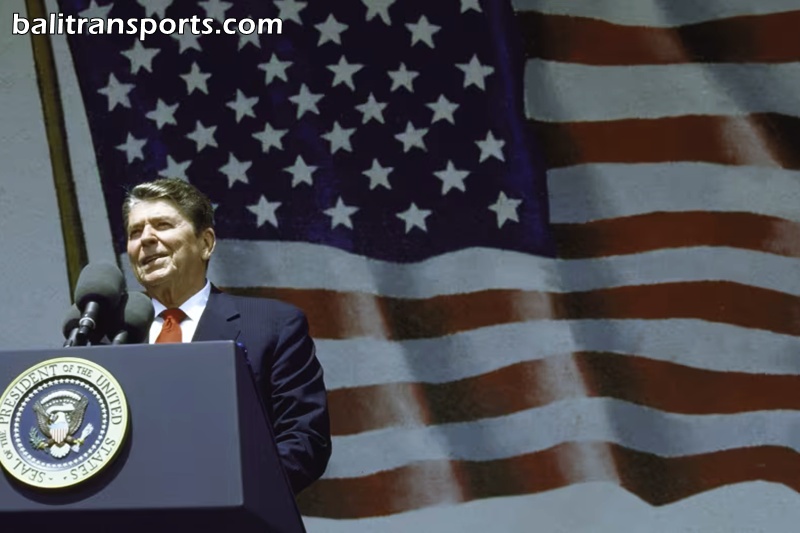Friday | 24th October 2025
New York — President Donald Trump has abruptly canceled ongoing trade negotiations with Canada, lashing out over what he called a “fake” advertisement produced by the Ontario government that featured clips of former U.S. President Ronald Reagan speaking against tariffs.
The controversy erupted after the Ronald Reagan Presidential Foundation & Institute accused the ad’s producers of misrepresenting Reagan’s words and using portions of his 1987 radio address out of context. Trump quickly seized on the Foundation’s statement, calling the spot “fraudulent” and claiming it distorted Reagan’s stance on tariffs — even though the original speech is widely recognized as one of Reagan’s clearest defenses of free trade.
“It wasn’t fake. It was edited,” one Reagan scholar told CNN, noting that while the ad selectively quoted from Reagan’s remarks, his overall message unmistakably condemned tariffs as harmful to American workers and the global economy.
The ad, purchased by the government of Ontario and aired on major U.S. television networks, spliced together portions of Reagan’s April 25, 1987, national radio address — a speech delivered from Camp David, where the then-president was preparing to meet Japan’s prime minister amid rising U.S.-Japan trade tensions. At that time, Japan’s booming industrial output had flooded American markets with affordable cars and electronics from brands like Toyota and Sony, undercutting major U.S. firms including General Motors and RCA.
Ironically, just before giving that speech, Reagan himself had imposed retaliatory tariffs on certain Japanese goods, particularly semiconductors, citing unfair trade practices. “We had clear evidence that Japanese companies were engaging in unfair trade practices that violated an agreement between Japan and the United States,” Reagan said at the time. “We expect our trading partners to live up to their agreements.”
But Reagan quickly made clear that such tariffs were exceptions, not the rule — and that he viewed protectionism as economically dangerous. In his address, Reagan described tariffs as “a blunt instrument” that hurt consumers, raise prices, invite retaliation, and ultimately destroy jobs. He warned that the high tariffs of the Smoot-Hawley era in the 1930s had deepened the Great Depression — a catastrophic period that had left “deep and searing” memories for his generation.
In the bulk of his remarks, Reagan criticized Congress — then controlled by Democrats — for pushing bills that could impose new trade restrictions, and he defended his administration’s commitment to open markets. “In certain select cases like the Japanese semiconductors,” Reagan said, “we’ve had to take temporary measures. But overall, our policy is one of free and fair trade.”
The Ontario government’s ad leaned heavily on Reagan’s pro–free trade rhetoric, framing it as a rebuke of Trump’s protectionist agenda and his use of tariffs as leverage in trade disputes. The ad’s timing appeared intentional: it aired repeatedly during the American League Championship Series featuring the Toronto Blue Jays, just as the team prepared to play in the World Series — a moment of intense national pride for Canadians.
Ontario Premier Doug Ford, a close ally of Canada’s conservative movement and a known admirer of Reagan, defended the ad during an October 14 speech. “That ad — it’s not a nasty ad. It’s very factual,” Ford said. “And coming from a person like Ronald Reagan, every Republican is going to identify that voice. He was just the best president America has ever seen, in my opinion.”
However, Trump was not persuaded. In a post on Truth Social, he claimed — incorrectly — that Reagan “loved tariffs for our country and its national security.” He thanked the Reagan Foundation for “exposing this FRAUD” and said the ad campaign was “dishonest propaganda” meant to undermine his trade agenda.
The Ronald Reagan Presidential Foundation & Institute, in its own statement, said the Ontario government had not sought permission to use or alter Reagan’s recorded remarks. While it is unclear whether legal permission was required, the Foundation said it was “reviewing all legal options” and urged the public to view the unedited 1987 address, which it has made available on YouTube.
It remains uncertain whether the dispute will have long-term consequences for U.S.-Canada trade relations, but Trump’s decision to cancel upcoming negotiations marks another rupture in what has been an already strained economic relationship between the two allies.

